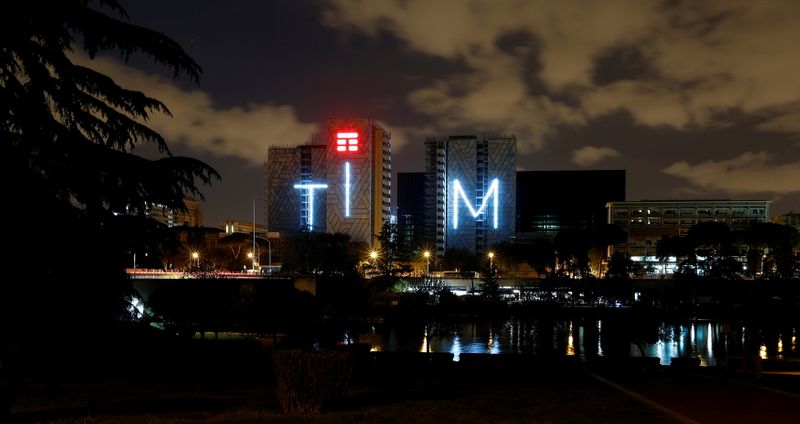MILAN (Reuters) – Telecom Italia (TIM) has received a 10.8 billion euro ($12 billion) approach from U.S. fund KKR aimed at taking Italy’s biggest phone group private, the company said on Sunday.
KKR’s move comes as TIM’s CEO Luigi Gubitosi battles for survival after coming under fire from top investor Vivendi following two profit warnings in three months.
TIM said KKR had set an indicative price of 0.505 euros for its possible buyout offer — a 45.7% premium to the ordinary shares’ closing price on Friday. KKR would also offer the same price for TIM’s savings shares.
The TIM board, chaired by former Bank of Italy official Salvatore Rossi, met for several hours on Sunday afternoon but in a short statement it gave no indication of whether it would support the approach. It noted that KKR had termed its action as “friendly” and aimed at winning the backing of the company and of the government.
Italy’s Treasury said foreign interest in Italian companies was “positive news for the country” and the market would assess how valid KKR’s plan is were it to materialise.
The government will closely follow developments with a focus on plans for TIM’s fixed-line assets, which would be key in determining whether it uses its veto powers.
Rome has special anti-takeover powers to shield companies deemed of strategic importance from foreign bids.
A new owner would also have to assume TIM’s 29 billion euro gross debt.
CARVE OUT
Gubitosi brought KKR onboard last year in a 1.8 billion euro deal that handed the New York-based fund a 37.5% stake in FiberCop, the unit holding TIM’s last-mile network connecting street cabinets to people’s homes.
KKR’s plan would see TIM carve out its fixed network to be run as a government-regulated asset along the model used by energy grid company Terna or gas grid firm Snam, two sources close to the matter said earlier on Sunday.
The government wants any plans for TIM’s grid to be in line with the goal of rapidly completing broadband rollout across Italy, supported by adequate investments, and protecting jobs, the Treasury said in its statement.
Gubitosi has started looking at ways to squeeze money out of TIM’s assets, revisiting in particular a plan to merge TIM’s fixed-line grid – its most prized asset – with that of fibre optic rival Open Fiber.
Sponsored by the previous government, that project had run aground under Prime Minister Mario Draghi.
Rome, preparing to tap billions of euros of European Union recovery funds to boost broadband connectivity in Italy, is aware of the need to find a way to shore up the former telecoms monopoly and protect its 42,500 domestic workers.
PRICE “TOO LOW”
Vivendi, which is pushing to replace Gubitosi, believes KKR’s offer does not adequately value TIM, a person close the French media group said.
Vivendi, which faces a steep capital loss on its 24% TIM stake after paying on average 1.071 euros a share, remains ready to work alongside Italy’s authorities and institutions for TIM’s long-term success, a spokesperson said.
Vivendi sees Gubitosi as a short-term solution for TIM, people close to the matter have said. One person said on Sunday KKR’s plan may buy Gubitosi a few more months.
Private equity firms CVC and Advent have also studied possible plans for TIM, working with former TIM CEO Marco Patuano, now a senior adviser to Nomura in Italy.
A spokesperson for the two funds said they were open to working with all stakeholders on a solution to strengthen TIM, denying any contacts with Vivendi.
To oversee a strategic asset such as the fixed line, state investor CDP has taken a 9.8% stake becoming TIM’s second-largest investor after Vivendi.
TIM’s fixed network is also a key asset supporting the debt burden which was cut further below the investment grade level by credit rating agency S&P on Friday.
TIM’s revenue have shrunk by a fifth over the past five years hit by aggressive competition at home from rivals such as Iliad, Vodafone, Wind Tre and Fastweb.
($1 = 0.8859 euros)
(Additional reporting by Agnieszka Flak in Milan and Giuseppe Fonte in Rome; editing by Andrew Heavens, David Evans and Keith Weir)
























